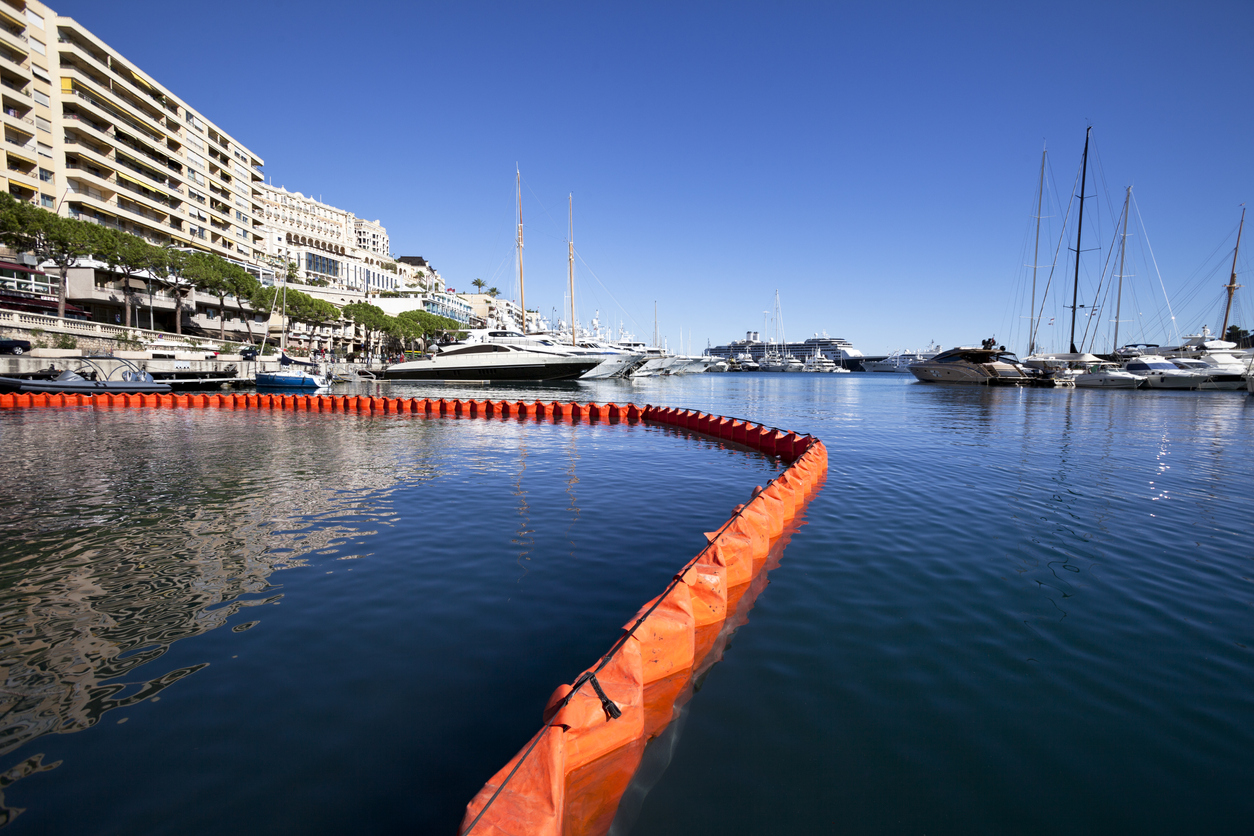
Preventing Oil Spills at Marinas
March 17, 2021
For the millions of boaters in the United States, commercial marinas provide a range of essential services. Marinas and yacht clubs offer storage, maintenance, mooring, and amenities – each of which comes with its own set of operational risks and challenges. Oil spills or discharges into sensitive waterways are a significant risk for marina owners. While many marina insurance policies include pollution coverage, preventing oil spills from happening in the first place protects marina assets and the environment.
In this guide, we will explore ways marinas can stop oil spills from damaging fragile coastal ecosystems.
Oil Pollution Sources in Marina Operations
Among the many potential pollutants to be found in marinas, oils and fuels are the most likely to cause environmental harm. A single discharge of petroleum into waterways can kill wildlife and harm coastal plant habitats. Spills of this nature tend to linger unless comprehensive cleanup procedures are followed. Oil spills also expose marina owners to significant liabilities, especially regulatory fines and penalties that can overwhelm even the most robust marina insurance policy.
Oil and fuel spills can come from:
- Leaks or uncontrolled discharges from fueling stations, fuel docks, and oil/fuel storage tanks.
- Bilge wastes pumped overboard by vessels moored on marina properties.
- Runoff from paved areas, especially where vehicles and boats are stored or maintained.
- Wastes from engine repair/maintenance areas.
- Ruptured fuel and oil lines from boat collisions.
Marinas operating in the coastal areas of the United States have a duty to prevent pollution from harming the environment. In the event that a spill occurs, the marina may be on the hook for expensive cleanup and mitigation.
Prevention of Oil and Fuel Spills
To minimize the risks associated with oil and fuel pollution in marina operations, marina owners must develop a comprehensive spill prevention plan. A plan is comprised of several critical components; to begin, marina owners and staff members should identify the potential pollution sources located on marina properties.
Pollution spills are often caused by faulty equipment. Inspecting fueling and lubrication systems at regular intervals for leaks or damaged piping can stop leaks before they can harm the environment. Marina staff members should conduct inspections on a weekly basis during the spring and summer months when boating activity levels are at their highest.
Next, maintenance and repair areas should be evaluated for pollution risks. Many marina owners opt to enclose maintenance facilities to reduce runoff; for those that remain open to the environment, spill cleanup materials must be readily available.
Runoff from paved areas, particularly near maintenance yards and in boat or vehicle parking lots, can carry oil and fuel wastes into waterways. One proven method of reducing the chances of pollution entering the water is by installing oil water separators on all drains that lead to waterways, including runoff channels and sink or washdown station drains in maintenance areas.
Staff training is crucial in preventing oil spills but is also a valuable risk management tool that supplements marina insurance policies. Training employees must include:
- Proper operation of fueling and fuel storage systems.
- Inspection of pollution-generating equipment.
- What to do if an oil or fuel spill occurs.
- Which personnel and agencies to notify in case of pollution discharges.
Finally, to comply with federal regulations, all marina owners with certain aboveground petroleum storage and fuel docks must prepare a Federal Spill Prevention, Control and Countermeasure (SPCC) plan. Regulatory agencies like the Environmental Protection Agency (EPA) may request this document in the case of a spill or pollution discharge. Failure to maintain the SPCC may result in steep financial penalties and even the loss of licensure. Marina insurance protects against many risks, but staying in compliance with applicable laws and regulations serves to minimize claims expenses. With a carefully developed plan, staff training, and regular inspections, marina owners can do their part to protect the coastal environments of the U.S. while providing boaters with the services and amenities they desire.
About Merrimac Marine Insurance
At Merrimac Marine, we are dedicated to providing insurance for the marine industry to protect your clients’ business and assets. For more information about our products and programs, contact our specialists today at (800) 681-1998.
